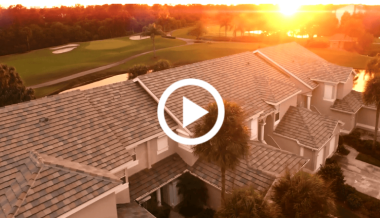Fewer Claims Mean Lower Risk
Hurricanes are a part of life in Florida, but skyrocketing property insurance rates don’t have to be. Here’s the deal: insurers assess claims history when determining rates. Fewer claims mean lower perceived risk. And lower risk? Lower premiums. Simple steps, like addressing leaks, inspecting weak spots, and scheduling preventative maintenance, can save your property from costly repairs—and steep premium hikes. If you’re on a regular maintenance plan with a roofing professional, your chances of filing claims drop significantly. (This is why so many of our re-roof projects immediately sign up for our RoofAid Maintenance Plans.)

Budget for Reserves, Not Emergencies
One of the best ways to control long-term costs is by building reserves specifically for roof repairs and replacements. When unexpected storms hit, having funds set aside prevents you from relying heavily on insurance claims, helping you maintain a clean claims record and keeping future premiums more predictable. Multi-family roofing reserve studies can help create these long-term financial plans. Conducted by experienced roofing contractors, these studies provide an accurate picture of your future roofing needs. With this insight, your association can schedule upgrades or repairs during the offseason—when costs are typically lower—and avoid scrambling after a storm.
Partner with Experts Who
Understand Multi-Family Roofing
One of the best ways to control long-term costs is by building reserves specifically for roof repairs and replacements. When unexpected storms hit, having funds set aside prevents you from relying heavily on insurance claims, helping you maintain a clean claims record and keeping future premiums more predictable. Multi-family roofing reserve studies can help create these long-term financial plans. Conducted by experienced roofing contractors, these studies provide an accurate picture of your future roofing needs. With this insight, your association can schedule upgrades or repairs during the offseason—when costs are typically lower—and avoid scrambling after a storm.
.jpg)

.png)
.png)